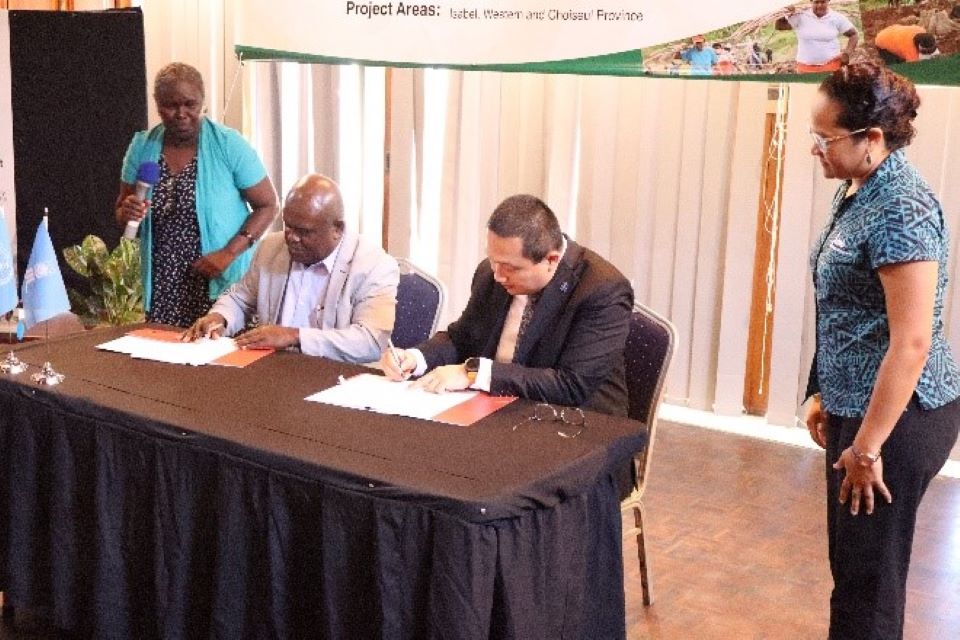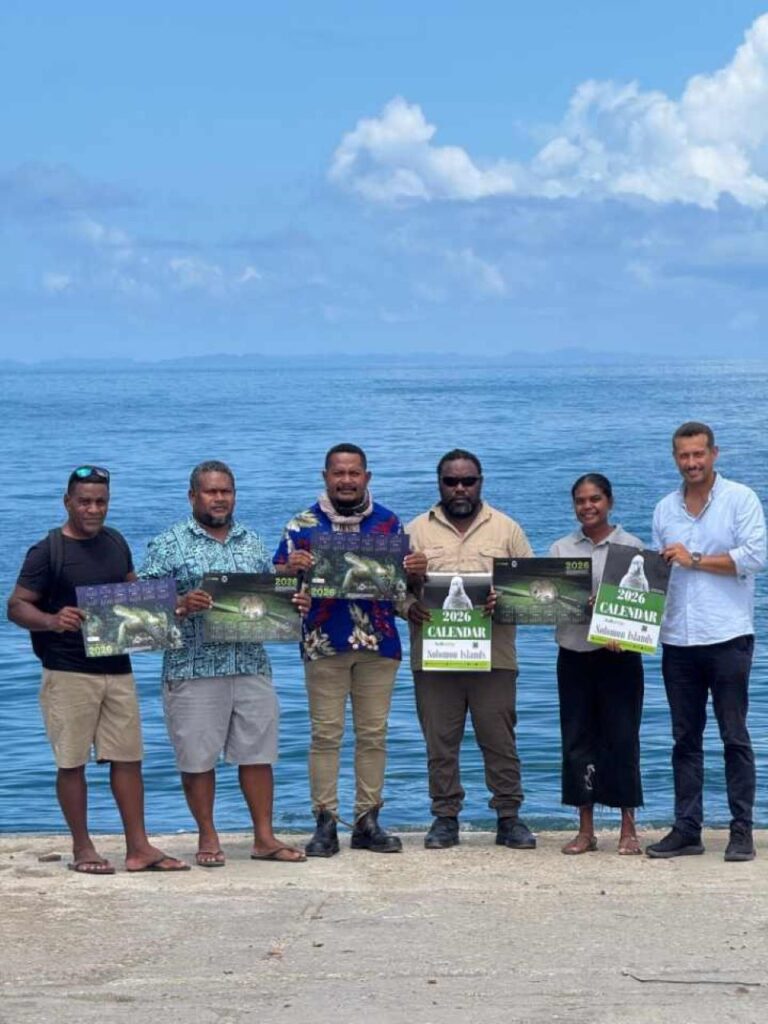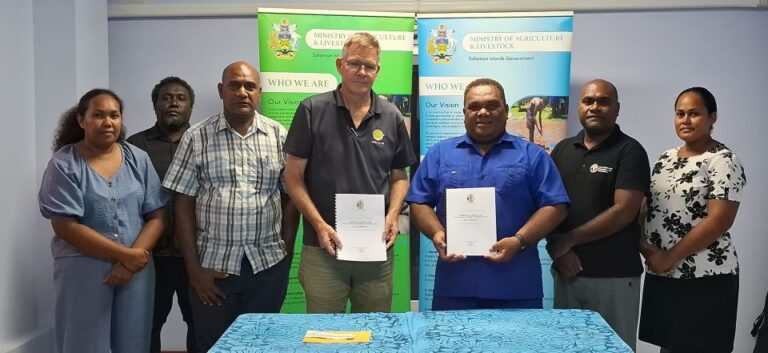The Government of Solomon Islands and the International Fund for Agricultural Development (IFAD) yesterday signed an agreement to partner on a US$20 million project to improve food security, enhance nutrition, and build resilience to climate change, directly benefiting more than 18,000 people over six years.
The Agriculture Investment for Markets and Nutrition (AIM-N) Project is an initiative that will build on indigenous peoples’ traditional farming systems to empower families to produce, purchase and consume more nutritious food, and improve rural livelihoods.
Signing the agreement was the Solomon Islands Minister of Finance and Treasury, Hon. Harry Kuma, and IFAD Country Director and Representative for Pacific Island Countries, Mr. Chandra Samekto.
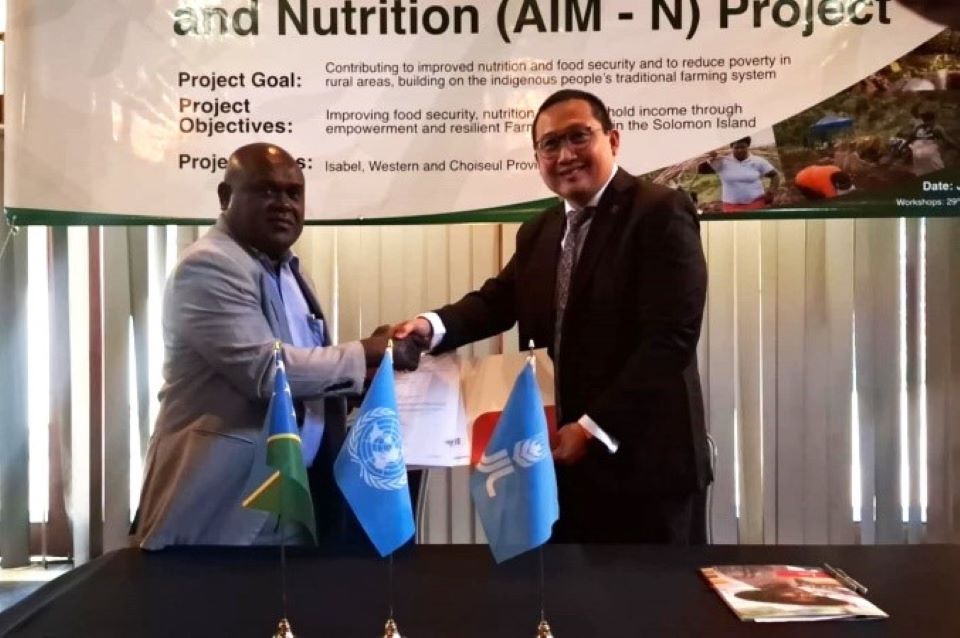
The project’s official launching in Honiara yesterday took off on a backdrop that in our nation, about one-third of children under five are stunted, and more than half of the adult population is overweight, largely due to increasing pressures on farming systems and the widespread availability of and increased preference for low-cost food imports. AIM-N will tackle these issues by revitalizing local food systems and creating sustainable economic opportunities linked to nutritious food production.
In his keynote address, Hon. Wayne Ghemu, Supervising Minister for Agriculture and Livestock MAL, described the project as, “a strategic response to the persistent challenges faced by our rural families—particularly women and youth—in securing nutritious food, sustainable incomes, and a future that can withstand the growing pressures of climate change, disasters, and volatile markets,” he said. This project is more than just another development initiative. It is a strategic response to the core challenges the GNUT government through MAL is seeking to address — including low agricultural productivity, limited access to markets, weak value chains, food insecurity, and gender and youth inequality in rural areas.
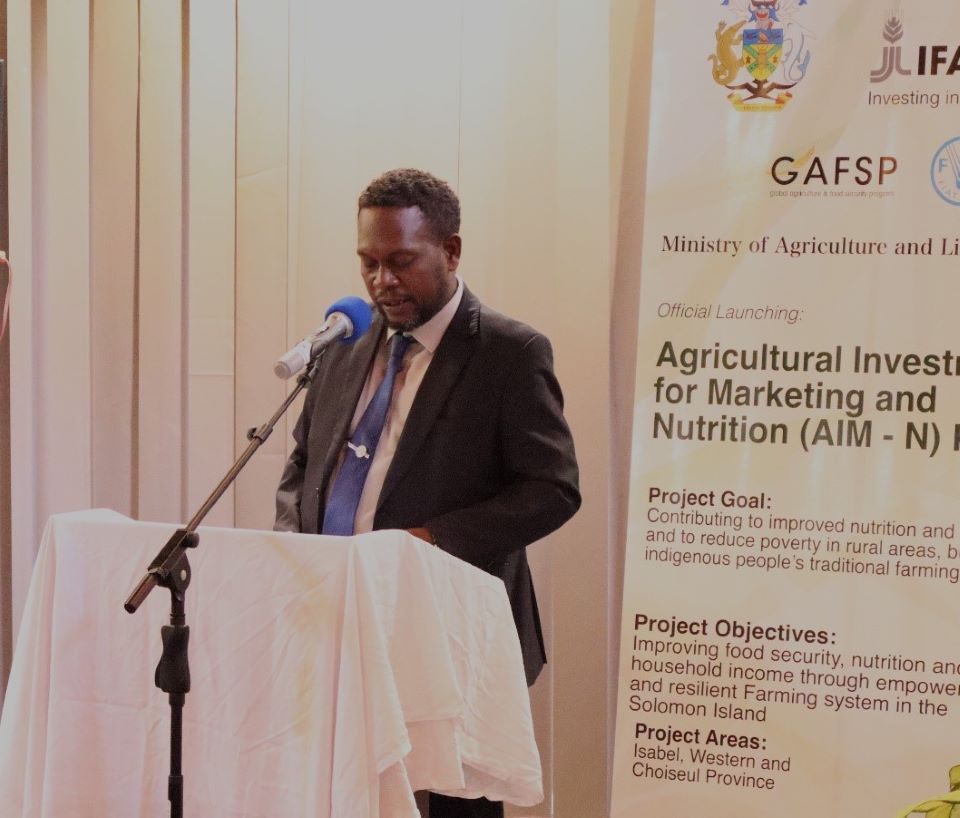
The total project cost is US$19.82 million, with a US$6.1 million grant from the Global Agriculture and Food Security Program (GAFSP) to be administered by IFAD, and a US$9.3 million loan from IFAD. A financial institution from the private sector will contribute US$820,000, while the government and community will provide domestic co-financing of US$1.2 million. The Food and Agricultural Organization (FAO) will manage another US$1.4 million from GAFSP.
The project will be implemented by the Ministry of Agriculture and Livestock (MAL) in the provinces of Choiseul, Isabel, and Western, benefitting an expected 18,330 people in 65 rural communities where subsistence farming is the main source of livelihood.
“This partnership with the Solomon Islands is a critical investment in the health, prosperity, and resilience of its rural people,” said Candra Samekto, IFAD Country Director, Pacific Islands.
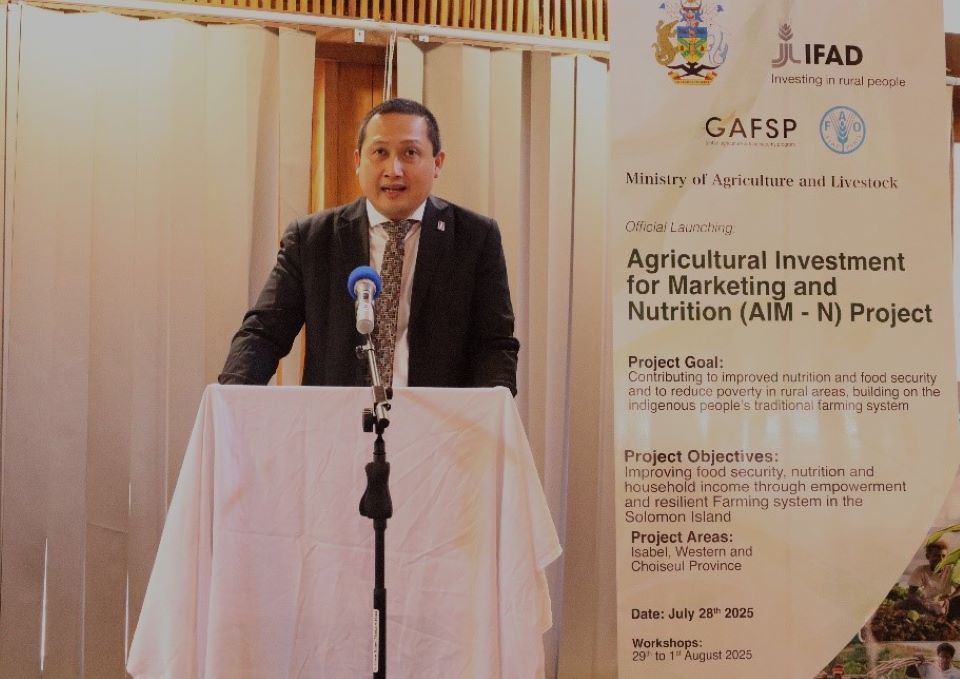
“By linking nutrition directly to agricultural production and market access, AIM-N empowers small-scale farmers, particularly women and youth, not just to earn a better living, but to build a healthier future for their families and communities. This project is a testament to our shared commitment to transforming food systems from the ground up.”
Mr. Samekto reaffirmed IFAD’s enduring commitment to the Solomon Islands.
“IFAD remain your partner of choice in development, your ally in the fight against food insecurity, and your supporter in transforming the livelihoods of rural communities. The AIM-N Project reflects IFAD’s comparative advantage—linking smallholder farmers to markets, empowering rural women and youth, and building climate-smart agriculture systems,” he said.
AIM-N will link nutrition education and behaviour change communication with the diversified production of nutritious, climate-resilient local foods. It will support community and kitchen gardens and work with six secondary boarding schools to improve student diets by procuring food from local farmers. It will also foster commercially viable partnerships between small-scale farmers and buyers, and help farmers improve production quality and business skills to meet market demands and secure better prices for their produce. The project will also provide competitive grants for women’s groups to support nutrition-focused and labour-saving initiatives. It will establish a line of credit, managed by the Development Bank of Solomon Islands (DBSI), to extend loans to micro, small, and medium agribusinesses and farmer organizations.
In thanking IFAD and the AIM N project partners, the MAL Supervising Permanent Secretary Mr. Michael Ho’ota highlighted “Today marks the beginning of a transformative journey for agriculture and food systems in the Solomon Islands.
“The AIM-N Project is a flagship initiative that seeks to empower our rural communities, strengthen household nutrition, and unlock the full potential of our agriculture sector through inclusive, resilient, and sustainable approaches.”
“Therefore, I on behalf of Solomon Islands government through the Ministry of Agriculture and Livestock wish to express my sincere gratitude to IFAD, FAO, and GAFSP. Your collaboration and commitment are instrumental in making this project a reality. Let us reaffirm our collective commitment to transforming agriculture—where no one is left behind, and where agriculture becomes the cornerstone of a healthier and more prosperous future,” Mr. Ho’ota said.
The AIM-N Project is expected to benefit more than 18,000 people, including 6,122 households, 1,800 students, and 90 micro and small enterprises, with a strong emphasis on gender and youth inclusion (50% women and 20% youth).
The project consists of four key components:
1. Action for Nutrition – Promoting healthy diets through education and the cultivation of local, diverse, and climate-resilient food crops.
2. Inclusive Market Partnerships – Strengthening value chains, connecting smallholder farmers to markets, and supporting school-based food systems.
3. Investments in Resilient Agri-Food Systems – Providing grants and loans to enhance infrastructure, value addition, and agribusiness development.
4. Rapid Disaster Response – Establishing a safety-net mechanism to protect development gains during natural and economic shocks.
With strong coordination between MAL and provincial governments, and strategic support from IFAD and FAO, the AIM-N Project is expected to serve as a model for inclusive, climate-resilient, and sustainable rural development across the Solomon Islands and the Pacific.
Source: Press Release – MAL

